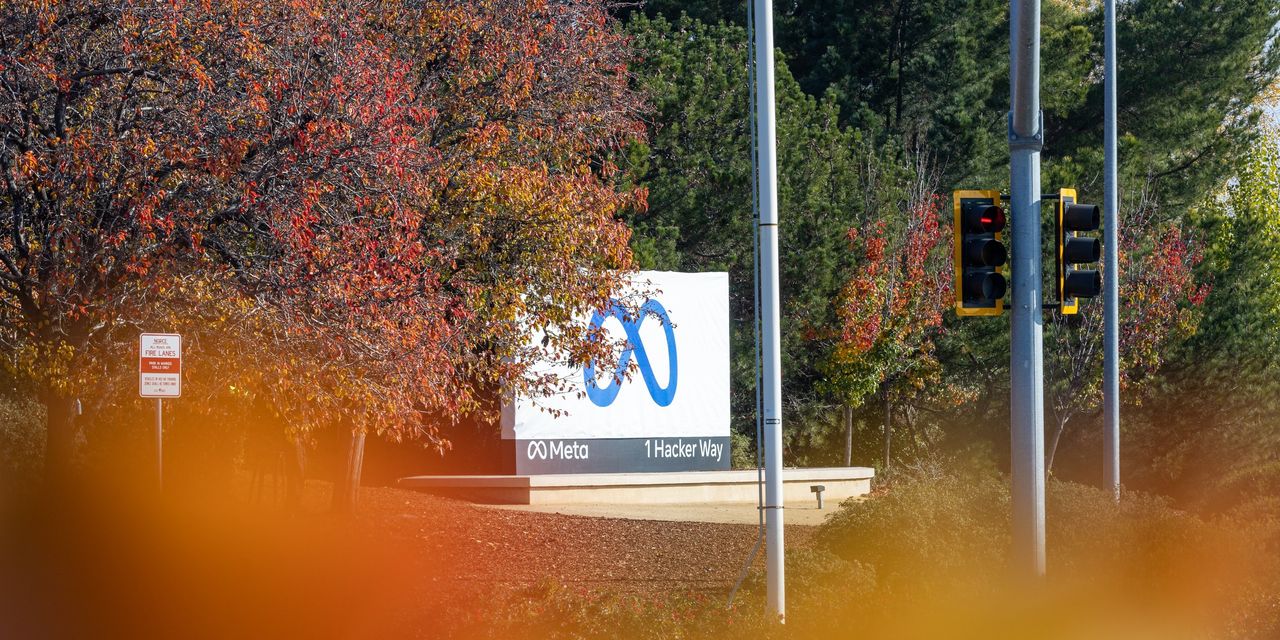
A lawsuit filed Wednesday seeks to hold Facebook’s FB 2.56% parent company liable in the 2020 killing of a federal security guard, in the latest effort to challenge the protections given to websites hosting user-generated content.
In a complaint against Meta Platforms Inc., FB 2.56% Angela Underwood Jacobs said the alleged murder of her brother, Dave Underwood, by antigovernment extremists was the result of a plot hatched on Facebook. Her brother was shot and killed by a man who had traveled to Oakland, Calif., with an intent to kill federal agents, according to federal prosecutors.
The lawsuit alleged that the man connected with another individual on Facebook before traveling to Oakland. The two men “connected through Facebook’s groups infrastructure and its use of algorithms designed and intended to increase user engagement,” the lawsuit said.
A Facebook spokesman said the claims are without legal basis. In the past, the company has said it has worked with law enforcement on the case. The spokesman said the company has banned more than 1,000 “militarized social movements” from its platform. The alleged shooter and accomplice have pleaded not guilty to charges related to the murder.
SHARE YOUR THOUGHTS
Should lawmakers make it easier to sue companies like Facebook for content people post on their sites? Join the conversation below.
The suit, filed in Alameda County Superior Court in Alameda, Calif., is the latest in a series of legal attempts to pierce the broad legal protections tech companies have when communication on their platforms is alleged to have caused harm. Unlike publishers of newspapers and books, internet companies like Facebook are protected by a 1996 federal law, Section 230 of the Communications Decency Act, that shields them from liability as sites that host user-generated content.
Recently, legislators have been discussing potential changes to the law, including curbing or revoking the liability protection, as some policy makers are concerned about the spread of content they deem harmful.
Last year, The Wall Street Journal published a series of articles based on internal Facebook documents showing how much the company knows about flaws in its platform and how often it has lacked the will or ability to address them. U.S. senators held hearings related to the Journal’s findings. Facebook has said it disputes the conclusions reached from the documents and that it wants new regulations that will create “standard rules for the internet.”
Facebook Chief Executive Mark Zuckerberg has called for Congress to pass legislation forcing digital platforms to earn the legal immunity they enjoy by demonstrating that they have systems in place to identify unlawful content and remove it.
Holding Facebook liable for things its users post online is difficult because of Section 230, said John Morris, a senior fellow at the Brookings Institution who focuses on internet policy and served in the previous two U.S. presidential administrations.
Nevertheless, several lawsuits are set to test the law’s protections. In a Texas case filed in 2018, an anonymous plaintiff who was allegedly trafficked for sex as a minor by people using Facebook to communicate is seeking to hold the company liable. The Texas Supreme Court dismissed most of the plaintiff’s claims under Section 230 last year but allowed some to go forward, writing, “we do not understand Section 230 to ‘create a lawless no-man’s-land on the Internet.’ ” The plaintiff asked the U.S. Supreme Court in September to consider the case and is awaiting a response. Facebook has said it is reviewing the case and that it takes action to prevent trafficking on the site.
The father of a TV news reporter who was shot dead on video in 2015 has filed a complaint against Facebook with the Federal Trade Commission because videos of the killing have remained on Facebook and Instagram. The reporter’s father has argued Facebook is involved in deceptive trade practices by violating its own terms of service in allowing the videos to be posted. Facebook has said that it continues to remove the videos from its site when people post them. The FTC has yet to respond to the complaint, according to Georgetown Law’s Civil Rights Clinic, which assisted with the complaint.
In the California lawsuit, Ms. Underwood Jacobs said the two men federal prosecutors have charged in her brother’s killing came together over Facebook after one of them, a former Air Force sergeant named Steven Carrillo, posted a video on a Facebook group page showing a crowd attacking two California Highway Patrol officers on May 28, 2020. Mr. Carrillo posted the video to a group associated with the boogaloo movement, the suit said.
The movement is a loose-knit group of right-wing, antigovernment extremists who often call themselves “boogaloo bois” (pronounced “boys”). Its adherents’ views are wide-ranging, with a focus on overturning authority, according to researchers who track extremist organizations. They grew their ranks in recent years on social media, mainly Facebook, according to these researchers.
Ms. Underwood Jacobs’s complaint said the two men came together on the boogaloo group because Facebook recommended that one of them, Robert Alvin Justus Jr., join the group.
One of Ms. Underwood Jacobs’s lawyers, Tory Nugent, said that by making group recommendations based on users’ interests, Facebook did “something far different than simply facilitate a bulletin board.” The act of recommending that people join groups that share inflammatory content makes Facebook more than a passive platform protected by Section 230, she said.
“Facebook aided and abetted an act of domestic terrorism,” Ms. Underwood Jacobs said. “No one is holding Facebook accountable, and that’s wrong.”
Facebook has previously said it is working with law enforcement and that it removed Mr. Carrillo’s account and several boogaloo-connected groups that have supported violence.
Mr. Carrillo wrote in one Facebook group post that the protests against police brutality sweeping the nation in 2020 were “a great opportunity to target the specialty soup bois,” a reference to federal agents, according to the complaint. In response, Mr. Justus wrote: “lets boogie,” the suit said.
Mr. Carrillo and Mr. Justus allegedly made plans to travel to Oakland for a May 29, 2020, protest, according to federal prosecutors. The pair drove in a van toward a guard post outside a federal building in Oakland, and Mr. Carrillo fired multiple rounds at Mr. Underwood and his partner, prosecutors alleged. Mr. Underwood was killed, and his partner was injured.
Mr. Carrillo has pleaded not guilty to murder and attempted murder charges. Mr. Justus has pleaded not guilty to aiding and abetting murder and attempted murder. Attorneys for the men didn’t return calls seeking comment.
Write to Justin Scheck at [email protected] and Zusha Elinson at [email protected]
Copyright ©2022 Dow Jones & Company, Inc. All Rights Reserved. 87990cbe856818d5eddac44c7b1cdeb8








